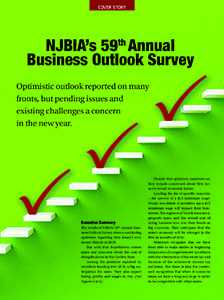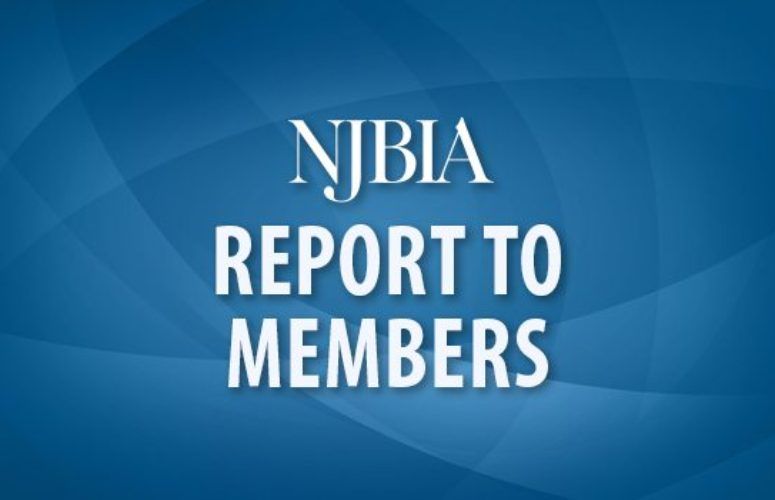
NJBIA’s 59th Annual Business Outlook Survey
Optimistic outlook reported on many fronts, but pending issues and existing challenges a concern in the new year.
On Dec 5, 2017Executive Summary
The results of NJBIA’s 59th Annual Business Outlook Survey show a continuing optimism regarding New Jersey’s economic climate in 2018.
But with that hopefulness comes some real concerns about the cost of doing business in the Garden State.
Among the positives reported by members heading into 2018: a big anticipation for sales. They also expect hiring, profits and wages to rise. (See Figures 3 & 6).
Despite that optimism, members say they remain concerned about New Jersey’s overall economic future.
Leading the list of specific concerns – the specter of a $15 minimum wage. Nearly two-thirds of members say a $15 minimum wage will impact their businesses. The expense of health insurance, property taxes, and the overall cost of doing business also rear their heads as big concerns. They anticipate that the state’s economy will be stronger in the first six months of 2018.
Members recognize that we have been able to make strides in beginning the process of comprehensive tax reform with the elimination of the estate tax and increase of the retirement income tax exclusion. But there is also the continued recognition that when it comes to taxes, we have a long way to go in order to be competitive with other states.
New Jersey continues to outpace other states in the quality of public schools and the quality of workforce, according to the survey. These positives could be jeopardized if the state cannot reduce its high cost of living, including the high tax burden and expensive housing cost. These factors make New Jersey unaffordable, particularly for millennials. As a result, we have seen our young people leave the state in higher numbers than any other demographic segment. If we cannot keep them here, we will not have the workforce necessary to fill anticipated new positions in New Jersey.
As in years past, members told us that they do not expect to retire in New Jersey, almost certainly because they take estate and inheritance taxes into account when making business decisions. This trend is reversing slightly as a result of the final tax reform bill signed into law, which eliminates the estate tax by January 2018 and raises the retirement income tax threshold significantly over the next several years.
IRS figures continue to show that New Jersey has lost tens of billions in new adjusted gross income due to over-regulation and the cost of doing business. The loss of these funds resulted in sharp losses of economic output, jobs and labor income. In 2018, NJBIA will continue to press for more comprehensive tax reform. We must harness the momentum and continue to focus on making New Jersey more affordable for all.
Click here to download a PDF of the 2018 Business Outlook Survey.
Related Articles:







